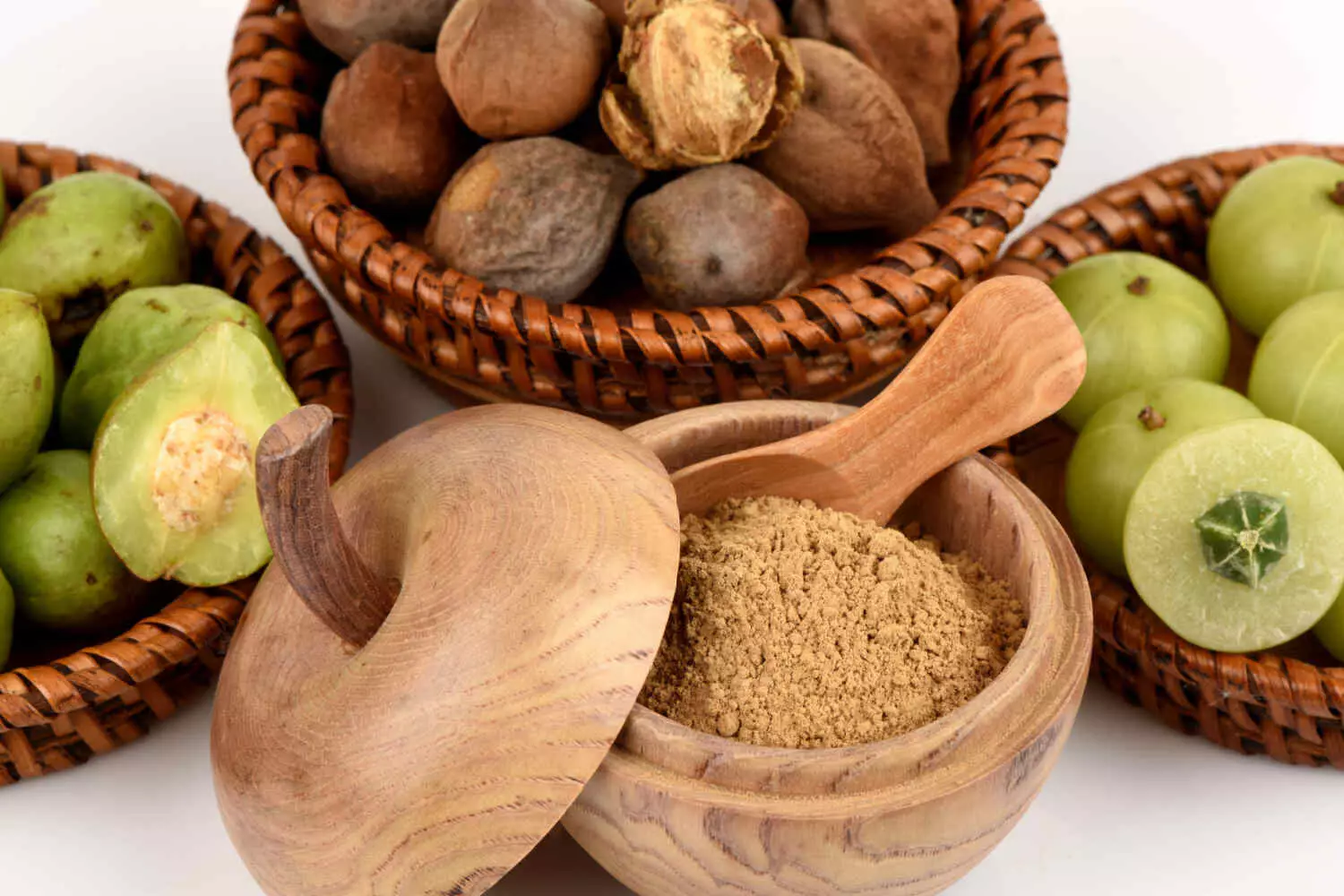
Eating Butter During Pregnancy: Safe or Unsafe
6 min readWritten by Editorial Team


A pregnancy diet should be nutrient-dense and should provide enough energy for the healthy growth of the baby. The diet should be such that the body of the mother-to-be can cope with the physical changes. At the same time, a pregnant woman has many cravings and looks forward to having a delicious meal to satisfy her cravings. Butter is one ingredient that can add a new dimension of flavor to any dish. It has some health properties to it too. In this article, we discuss whether butter during pregnancy is safe and how you can exercise moderation.
A balanced and nutritious diet should have the right and adequate amount of proteins, fats, carbohydrates, vegetables as well as fruits. Fats are very important for the growth and development of the baby and they equally offer strength to the mother. Butter is one such fat on which many myths prevail. So let us burst out some of them and find out the safety, benefits, and other important topics as below.
In This Article
- Is Consuming Butter Safe During Pregnancy?
- What are the Benefits of Consuming Butter During Pregnancy?
- What are the Risks of Eating Butter During Pregnancy?
- Which is Better? Salted or Unsalted Butter?
- How Much Butter is Recommended During Pregnancy?
- Are There Any Healthy Alternatives For Butter During Pregnancy?
- Eating Butter During the First Trimester
- Eating Butter During the Third Trimester
- Guidelines For Consuming Butter During Pregnancy
- FAQ’s
Is Consuming Butter Safe During Pregnancy?
Yes, butter is safe during pregnancy as long as the quantity is not too much. However, in case the mother-to-be develops any allergies to dairy products, then she should avoid having it for the rest of her pregnancy.
What are the Benefits of Consuming Butter During Pregnancy?
The benefits of consuming butter during the pregnancy phase are given below:
1. Building Muscles
Butter has a good amount of saturated fat that accounts for building up the baby’s muscles. Eating butter in moderation provides the much-needed for you and your baby.
2. Healthy Bones
Butter is rich in calcium and assists with the healthy development of the teeth as well as the bones of a baby.
3. Reduces Stress
Pregnant women are always advised to eat healthily and stay happy, follow a no-stress routine as that greatly impacts the baby as well. Butter even has flavonoids and its consumption helps in minimizing stress levels.
4. Better Brain Development
Vitamin E is a major component of butter, which greatly helps with the brain development of the baby.
5. Look Younger
Pregnancy comes with many hormonal and physical changes which can make one look dull and tired. Butter is an excellent source of antioxidants that can help with the regeneration of the skin cells, offering a radiant glow to the skin by making one look younger..
6. Energy Giver
Butter is also a rich source of vitamins like Vitamin D, E, and K, which are essential for the mother’s health and the proper growth and development of the fetus.
[Read: Vitamin K During Pregnancy]
7. Hormonal Problems
Butter can provide relief from certain hormonal issues, but always consult your doctor before adding butter to your diet.
8. Maintains Cholesterol Level
Butter contains short and medium-chain fatty acids, thereby, which help in regulating the cholesterol levels of the expecting mother.
What are the Risks of Eating Butter During Pregnancy?

The saturated fat present in butter can aggravate obesity. Therefore think twice before having this high-calorie content food. Excess fat intake leads to acute heart ailments as well as diabetic issues.
Which is Better? Salted or Unsalted Butter?
Butter is not a great choice for frequent consumption when you are pregnant. However, unsalted butter tastes quite similar to salted butter and is any day better than the salted one. Having butter in moderation does no harm, whether salted or unsalted.
How Much Butter Is Recommended During Pregnancy?
Butter certainly adds a creamy texture to any food item, whether it’s a dish or even a cookie or simple piece of bread. Unsalted butter during pregnancy is not harmful to pregnant women. When consumed in butter, it helps with the absorption of other vital minerals and provides rigorous energy.
For this reason, you must always include butter in moderation in your diet. A teaspoon of unsalted butter once in a while is not dangerous, but should not be a part of a regular diet plan. More emphasis has to be given to the quantity as over-consumption can cause serious health hazards.
[Read: Is Greek Yogurt Safe During Pregnancy?]
Are There Any Healthy Alternatives For Butter During Pregnancy?

In case you find it difficult to give up the craving for butter you can opt for alternatives as an excess of unsalted butter is also not good for your health. Some alternative ways to replace butter, which would also make food tasty and appealing as well as healthy are as below:
- Apply a fat reduction whipped margarine to a slice of toast.
- Consume muffins, desserts with applesauce that is sugar-free.
- Use olive oil instead of butter.
- Substitute butter with low-fat plain yogurt along with your baked veggies.
- Season your dishes with homemade chicken broth and add fresh herbs in the place of butter.
Eating Butter During the First Trimester
Many expecting women who are experiencing nausea and morning sickness report that butter helps them to combat these issues. The taste of butter makes food more appetizing and easy to consume. Always use unsalted, low-fat butter during pregnancy.
Eating Butter During the Third Trimester
The last or the third trimester is very taxing for the mother as the weight increases by leaps and bounds. It is a crucial period and an extremely challenging one as well. The baby is full term as the 37th week is over, after which the baby can be born at any time.
Butter is laxative in nature and can induce labor if consumed frequently. It can aggravate the bowel movement to increase the contractions till the uterus. It even helps in lubricating the vagina making the delivery a smooth affair. Nevertheless, ghee is considered to be a healthy source of fat that you and your baby can benefit from. Read more about it next.
[Read: Can Pregnant Women Eat Feta Cheese?]
Guidelines For Consuming Butter During Pregnancy

Following these guidelines helps you to incorporate the butter into your pregnancy diet in a healthy way:
- Butter can be used as a spread for baked items.
- Steam your vegetables and then lightly saute them with butter.
- You can add butter to any dish at the end of the preparation just before turning off the stove to enhance its taste.
- All sorts of continental food can be made with butter.
- Every instance, you eat some butter, make sure you balance your meal with healthy items. Making it part of a nutritional diet (that comprises fruits, vegetables, and whole grains) will help to minimize its side effects.
An expecting mother requires a healthy and wholesome diet that offers maximum nutrition and should have food from all the food groups. Fat is also a requisite as it is the factor that offers maximum energy and is good for the overall growth and development of both the mother as well as the baby.
FAQ’s
1. Can Eating Butter During Pregnancy Increase my Weight?
Yes, it can. butter is rich in fats and cholesterol. Over eating it can indeed add weight.
2. Can Eating Butter During Pregnancy Help Baby Brain Development?
Yes, it can. butter is rich in vitamin E. This can aid in brain development.
3. Can Eating Butter During Pregnancy Cause Heart Issues?
Yes, it can. if you already have high cholesterol, you need to avoid or reduce the consumption of butter. Saturated fat can load the heart.
4. Can Eating Butter in my 3rd Trimester Help With Vaginal Birth?
Many elders believe in this. They believe it can lubricate the vagina. Thus helping in easy movement of the baby through the birth canal.
Read Also: Craving For Cheese During Pregnancy – Is It Safe?

Editorial Team,
With a rich experience in pregnancy and parenting, our team of experts create insightful, well-curated, and easy-to-read content for our to-be-parents and parents at all stages of parenting.Read more.
Responses (0)
Want curated content sharply tailored for your exact stage of parenting?
Sponsored content
Discover great local businesses around you for your kids.
Get regular updates, great recommendations and other right stuff at the right time.











